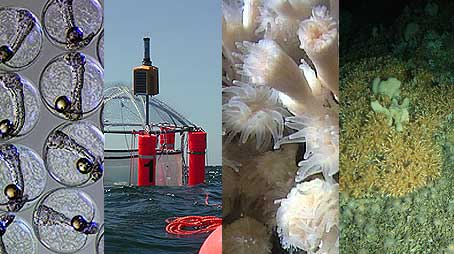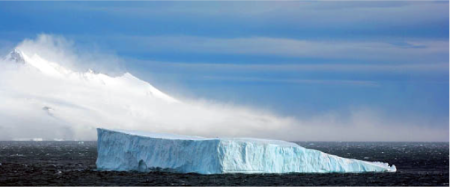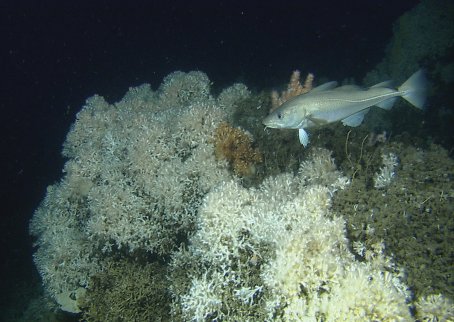| SEARCH |
-

Nov 17, 2015
Reflections on a three-decade legacy
The International Geosphere-Biosphere Programme (IGBP) will come to a close at t...
-
Nov 17, 2015
Use of and access to content on this website
Text and images produced by IGBP in house are free to use with appropriate credi...
-
Nov 12, 2015
Bella Gaia performance and panel discussion to mark IGBP's closure
A musical performance by Bella Gaia will celebrate the achievements and legacy o...
-

Towards Future Earth:
evolution or revolution?
During its three decades of existence, the International Geosphere-Biosphere Pro...
-
A personal note on IGBP and the social sciences
Humans are an integral component of the Earth system as conceptualised by IGBP. João Morais recalls key milestones in IGBP’s engagement with the social sciences and offers some words of advice for Future Earth.
-
IGBP and Earth observation:
a co-evolution
The iconic images of Earth beamed back by the earliest spacecraft helped to galvanise interest in our planet’s environment. The subsequent evolution and development of satellites for Earth observation has been intricately linked with that of IGBP and other global-change research programmes, write Jack Kaye and Cat Downy .
-
Deltas at risk
Around 500 million people worldwide live on deltas, but many of the world's deltas are sinking due ...
-
Climate change: the state of the science
A new data visualization released on the first day of the plenary negotiations at the UNFCCC’s clima...
-
Climate Change:
the State of the Science
Videos now online from the Stockholm public forum to mark the launch of the IPCC's climate report, 2...

Published: April 1, 2009
First published in IGBP's Global Change Newsletter Issue 73, April 2009
Consequences of ocean acidification for fisheries
Jan Helge Fosså
Tore Jakobsen
Institute of Marine Research
Bergen, Norway
jhf@imr.no
Tore Jakobsen
Institute of Marine Research
Bergen, Norway
jhf@imr.no
Richard Bellerby
Bjerknes Center for Climate Research
Bergen, Norway
Features |
The Ocean in a High-CO2 World: Science highlights from the symposium
Ocean acidification can affect fish both directly through physiological processes and indirectly through changes in the marine food webs, such as food quality, quantity and availability, and through the deterioration of fish habitats, such as tropical and deep-sea coral reefs. Alone, or in combination with other factors, ocean acidification can affect reproduction, growth and mortality in fish populations. Early life stages, hence recruitment of young fish into the fish stock, may be particularly vulnerable. This is bad news because recruitment governs the dynamics of fish stock biomass. Observations and model predictions of ocean acidification show that the changes occur faster and are stronger in high latitude oceans. This can have significant consequences on fisheries in the north Pacific and Atlantic that hold some of the most important fish stocks in the world, among them Alaska pollock, Atlantic herring, blue whiting, and north-eastern Arctic cod. The collapse of fish stocks is most likely to occur when overfishing coincides with unfavourable environmental conditions that reduce recruitment. Institutions responsible for fisheries management need to be adaptive and respond quickly to new environmental knowledge, enabling them to maintain healthy and robust fish stocks that are not overfished and have suffered a minimum loss of genetic diversity. This can secure a high potential for adaptation to changes in the environment.


Cod in a deep-water coral habitat at 200 m depth. The NE-Arctic cod stock is one of the few cod stocks that so far have not been fished down due to mismanagement. But problems may soon come: the cod lives in a high latitude ecosystem that will experience significant ocean acidification within a few decades. Modelling predicts that deep-water coral reefs off the coast of Norway may meet undersaturated conditions within this century.
Photo: Jan Helge Fosså and Pål B. Mortensen, Institute of Marine Research, Norway.
Photo: Jan Helge Fosså and Pål B. Mortensen, Institute of Marine Research, Norway.

IGBP closed at the end of 2015. This website is no longer updated.
-

Global Change Magazine No. 84
This final issue of the magazine takes stock of IGBP’s scientific and institutional accomplishments as well as its contributions to policy and capacity building. It features interviews of several past...
-

Global Change Magazine No. 83
This issue features a special section on carbon. You can read about peak greenhouse-gas emissions in China, the mitigation of black carbon emissions and the effect of the 2010-2011 La Niña event on gl...
RECOMMENDED
-
INTERGOVERNMENTAL PANEL ON CLIMATE CHANGE:
How green is my future?
UN panel foresees big growth in renewable energy, but policies will dictate just how big.
-
UK:
'The Anthropocene: a new epoch of geological time?'
Royal Society, Philosphical Transactions A





















